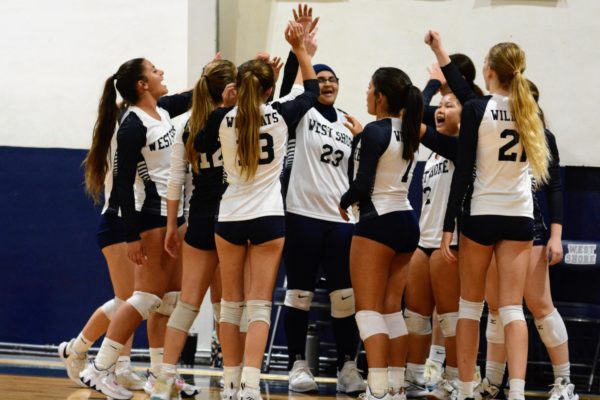Sports equity for trans students remains complicated
November 10, 2021
Gov. Ron DeSantis recently signed a bill into law that bans transgender female athletes from competing in all high-school sports for girls’ teams.
Critics have called the ban discriminatory and harmful to young transgender women. On the other hand, those who support the ban argue that high schools don’t have the financial resources to test their athletes for testosterone levels, and without that ability, female transgender athletes could gain an unfair advantage.
“A lot of female athletes in high school are not going to state championships, especially in track and field and individual sports because they are competing with transgender females,” physical education teacher Greg Eller said.
Sophomore Jake Rodriguez, who played high school sports prior to transitioning from male to female, said she is less concerned.
“On a high-school level there should not be a bans on it, just because it’s only high-school sports,” she said. “And we should also take into consideration that just in nature itself everybody has different bodies, and everybody has different body types. Everybody has natural advantages and disadvantages.”
DeSantis’ ban raises the question of how gender transgender athletes will compete going forward.
“I will probably just compete in the boys’ teams,” Rodriguez said. “I would prefer to keep away from controversies and arguments, and it’s no big deal to me, I’m still a good athlete regardless.”
In professional sports, transgender females have been permitted to play sports under the Olympic standard as long they have identified the same way for four years, and have fewer than 10 nonomoles per liter of blood, as of 2015.
Eller, however, said he is not convinced that the Olympic standard is restrictive enough.
“The advantages of male puberty to that point are too much,” he said. “You’ve been able to develop all that muscle ahead of time. All you’ve got to do at that point is maintain it, so at no point is it fair.”
Rodriguez said it’s more about timing rather than sex.
“It depends a lot on when they started [to transition],” she said. “If you start at a young age it’s a lot more even, especially because your body will begin to grow just as a normal female’s would. If you start later in life, then I think they definitely have a little bit of an advantage.”
Rodriguez said he agrees with Greg on puberty, but that more research is needed.
“It’s a difficult thing because while estrogen does change the body, once you’ve already gone through puberty there are changes that can’t be undone,” she said, “But personally, I’m not too sure about transgender athletes, it’s definitely a hard question.”
By Aaron Murphy

![The Melbourne Fire Department recognized coach and custodian Derrick Hamilton on April 16 with the Lifesaving Citizen Award during lunch. I would just react for anyone, Hamilton said. My love for children -- thats what it comes down to. [I am] where I am supposed to be.](https://westshoreroar.com/wp-content/uploads/2024/04/DSC_0639-1-e1713376507113-1200x805.jpg)














